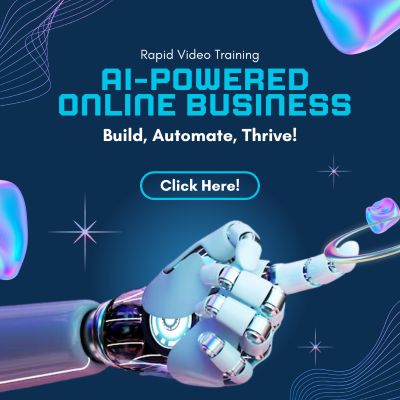Is Your SEO Strategy Ignoring Real People?
Your SEO strategy focuses on search engines, algorithms, and ranking factors while losing sight of the actual humans who might benefit from your content.
You optimize for keyword density, search volume, and competition metrics without considering whether real people would find your content helpful, engaging, or worth their time.
Keyword research tools guide your content creation based on search volume data and competition analysis rather than genuine user needs and problems.
You create articles targeting high-volume keywords without understanding why people search for those terms or what they hope to accomplish.
Your content answers the search queries you think people have rather than addressing their actual concerns.
Your content reads like it was written for search engines rather than human readers.
Awkward keyword placement, repetitive phrases, and unnatural language patterns make your articles difficult to read and engage with.
Users can tell when content has been optimized for algorithms instead of their benefit, and they respond accordingly.
Title tag optimization focuses on including target keywords rather than creating compelling headlines that make people want to click and read.
Your perfectly optimized titles might rank well but fail to generate curiosity or interest among actual users browsing search results.
SEO-focused titles often sound robotic compared to naturally engaging headlines.
Meta descriptions written for search engines describe what your content contains rather than explaining why users should care about reading it.
Your descriptions list features and keywords instead of highlighting benefits and outcomes that matter to real people facing actual problems.
Internal linking strategies prioritize search engine crawling and page authority distribution over user navigation and experience.
You link to pages based on SEO benefit rather than whether those links help users find relevant, helpful information.
Your internal links serve algorithms better than they serve human visitors.
Content structure and formatting optimize for featured snippets and search features rather than readability and user engagement.
You break information into snippet-friendly formats without considering whether that structure makes sense for human comprehension and learning.
Your content calendar revolves around keyword opportunities and search trends rather than addressing the evolving needs and interests of your actual audience.
You create content because keyword tools suggest demand rather than because you understand problems your audience faces.
User experience gets sacrificed for technical SEO optimizations that improve search rankings but hurt human interaction with your website.
Slow-loading pages packed with tracking scripts, pop-ups, and advertisements prioritize data collection and SEO metrics over visitor satisfaction.
Your content assumes that users want comprehensive, long-form articles when many prefer concise, actionable information they can apply immediately.
You optimize for content length and topic coverage without considering how real people consume information in their daily lives.
Social media and email marketing get treated as afterthoughts in SEO-focused strategies, even though these channels often provide better engagement and conversion rates than organic search traffic.
You invest heavily in search optimization while neglecting the communication channels where your audience actively participates.
Brand building takes a backseat to keyword targeting, even though brand recognition increasingly influences search behavior and user trust.
People search for brands they know and trust rather than generic keywords.
Your SEO strategy might rank for terms while failing to build the brand recognition that drives sustainable traffic.
Local SEO tactics focus on directory submissions and citation building rather than actually serving local customers well.
You optimize for local search rankings without ensuring that your business provides excellent experiences for local customers who find you online.
Content promotion strategies assume that good SEO will naturally drive traffic without requiring active marketing and relationship building.
You create optimized content and wait for search engines to deliver an audience instead of actively engaging with communities where your potential readers spend time.
Your analytics focus on search engine metrics like rankings, impressions, and click-through rates rather than human engagement indicators like time spent learning, problem resolution, and return visits.
You measure SEO success without understanding whether your content actually helps real people accomplish their goals.
Customer feedback and user research rarely influence your SEO strategy, even though understanding user needs should guide content creation and optimization decisions.
You make SEO choices based on tool data rather than direct input from the people you’re trying to reach.
The questions you answer in your content come from keyword research rather than actual questions your customers ask through support channels, social media, and direct communication.
Real user questions often differ significantly from what keyword tools suggest people are searching for.
Your expertise gets filtered through SEO best practices instead of being communicated in the most helpful way for your audience.
You modify your natural communication style to accommodate search engine preferences rather than focusing on clear, authentic communication with real people.
Conversion optimization gets overshadowed by traffic generation goals, even though helping users accomplish their objectives matters more than simply attracting visitors.
Your SEO strategy succeeds at bringing people to your site but fails to guide them toward valuable outcomes.
The humanity gets stripped out of your content through over-optimization for search features.
Your personality, unique perspective, and authentic voice get replaced by generic, SEO-friendly language that algorithms prefer but humans find boring.
Successful SEO strategies in the current environment require balancing search engine optimization with genuine human value creation.
The businesses that thrive are those that understand how to serve both search algorithms and real people effectively rather than sacrificing human experience for algorithmic performance.
Your SEO strategy needs real people at the center rather than treating human needs as secondary considerations in an algorithm-focused approach.
The most sustainable search success comes from creating content that genuinely serves your audience while remaining discoverable through search engines.
People should always come first in any effective SEO strategy.





0 Comments